Henry Sproatt
| Henry Sproatt | |
|---|---|
| Born |
June 14, 1866 Toronto, Ontario |
| Died |
October 4, 1934 Toronto |
| Nationality | Canadian |
| Occupation | Architect |
| Practice | Sproatt & Rolph |
Henry Sproatt (June 14, 1866– October 4, 1934) was a Canadian architect in the early 20th Century.
Born in Toronto, he trained in Europe and in New York City. He formed a partnership with another celebrated architect, John A. Pearson in 1890 and with Frank Darling in 1893. Sproatt parted ways in 1896 and formed a new firm in 1899 with Ernest Ross Rolph (1871-1958), Sproatt & Rolph.
He was a fellow of the Royal Institute of British Architects. He died in Toronto in 1934. The firm continued under Ernest Rolph until 1942 and then taken over by his son Charles Beverley Sproatt (1896-?) from 1958 until 1970 (and who died in 1976).
Projects
| Building | Year Completed | Builder | Style | Source | Location | Image |
|---|---|---|---|---|---|---|
| George Gooderham House | 1889–92 | Henry Sproatt | Neo-Gothic | 15 | 135 St. George Street, Toronto | 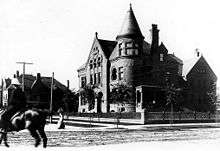 |
| Victoria College | 1910 | Henry Sproatt | Neo-Gothic | 15, W | 91 Charles Street West, University of Toronto, St. George campus | |
| Hart House | 1911–24 | Henry Sproatt-Engineer Ernest Rolph | Neo-Gothic | 15, W | 7 Hart House Circle, University of Toronto, St. George campus | |
| National Club | 1906 | Henry Sproatt | Neo-Gothic | 303 Bay Street, Toronto | 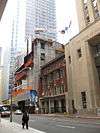 | |
| North wing of the Chester D. Massey House | 1907 | Henry Sproatt | Neo-Gothic | 519 Jarvis Street, Toronto | ||
| Bishop Strachan School | 1912 | Henry Sproatt | Neo-Gothic | Toronto | | |
| Burwash Hall | 1911–13 | Henry Sproatt | Neo-Gothic | Victoria College, University of Toronto, St. George campus | 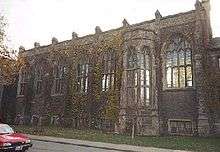 | |
| Ontario Club | 1913 | Henry Sproatt | Neo-Gothic | Toronto | ||
| Royal Canadian Yacht Club | 1920 - 1922 | Sproatt and Rolph | Toronto Island, Toronto | | ||
| Soldier's Clarion Tower | 1924 | Henry Sproatt | Neo-Gothic | Toronto | 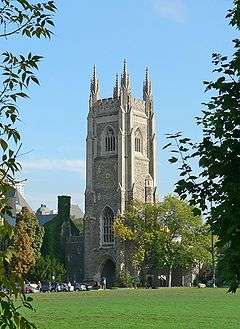 | |
| Manulife South Tower | 1926 | Henry Sproatt | Neo-Gothic 56 M, 14 stories | Toronto | ||
| Thistletown Regional Centre | 1927-1928 | Henry Sproatt | Modern Classical | Etobicoke | ||
| College Park | 1928–1929 | Henry Sproatt | Neo-Gothic | Toronto | 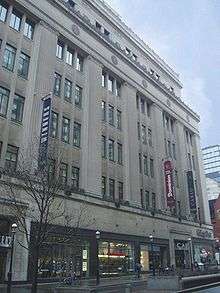 | |
| Canada Permanent Trust Building | 1930 | Henry Sproatt | Neo-Gothic 77 Meters, 18 stories | Toronto | 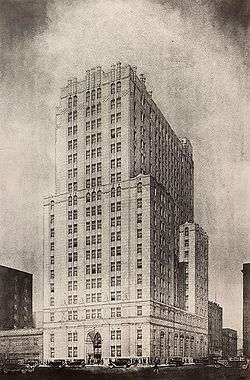 | |
| Fairmont Royal York Hotel (with architects Ross and Macdonald) | 1929 | Henry Sproatt | Neo-Gothic | Toronto | 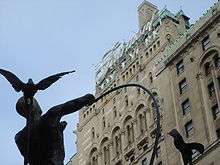 | |
| Canada Life Building | 1931 | Henry Sproatt | Neo-Gothic 87 Meters, 15 stories | Toronto | 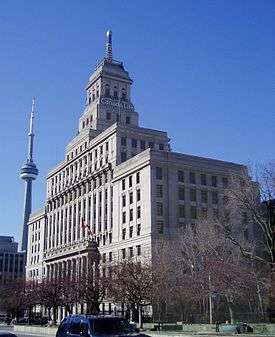 | |
| National Research Council (Canada) Laboratories, | 1932 | Henry Sproatt | Ottawa, Ontario |  | ||
| Knox Presbyterian Church | 1932 | Henry Sproatt | Neo-Gothic | Ottawa | | |
| Emmanuel College, Toronto | 1932 | Henry Sproatt | Neo-Gothic | Toronto | 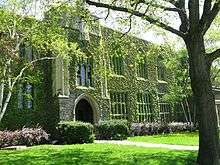 | |
| Princess Margaret Hospital (Toronto) | 1935 | Henry Sproatt | Neo-Gothic 72 Meters, 18 stories | Toronto | | |
| Wikimedia Commons has media related to Henry Sproatt. |
External links
- Henry Sproatt
- Sproatt and Rolph in The Canadian Encyclopedia
- Sproatt and Rolph
- Soldier's Tower
- Hart House, U of T
- Knox Presbyterian Church and its *History
- Request for Heritage Review TRC
| Cultural offices | ||
|---|---|---|
| Preceded by George Horne Russell |
President of the Royal Canadian Academy of Arts 1926-1929 |
Succeeded by Wylie Grier |
This article is issued from Wikipedia - version of the 9/28/2016. The text is available under the Creative Commons Attribution/Share Alike but additional terms may apply for the media files.